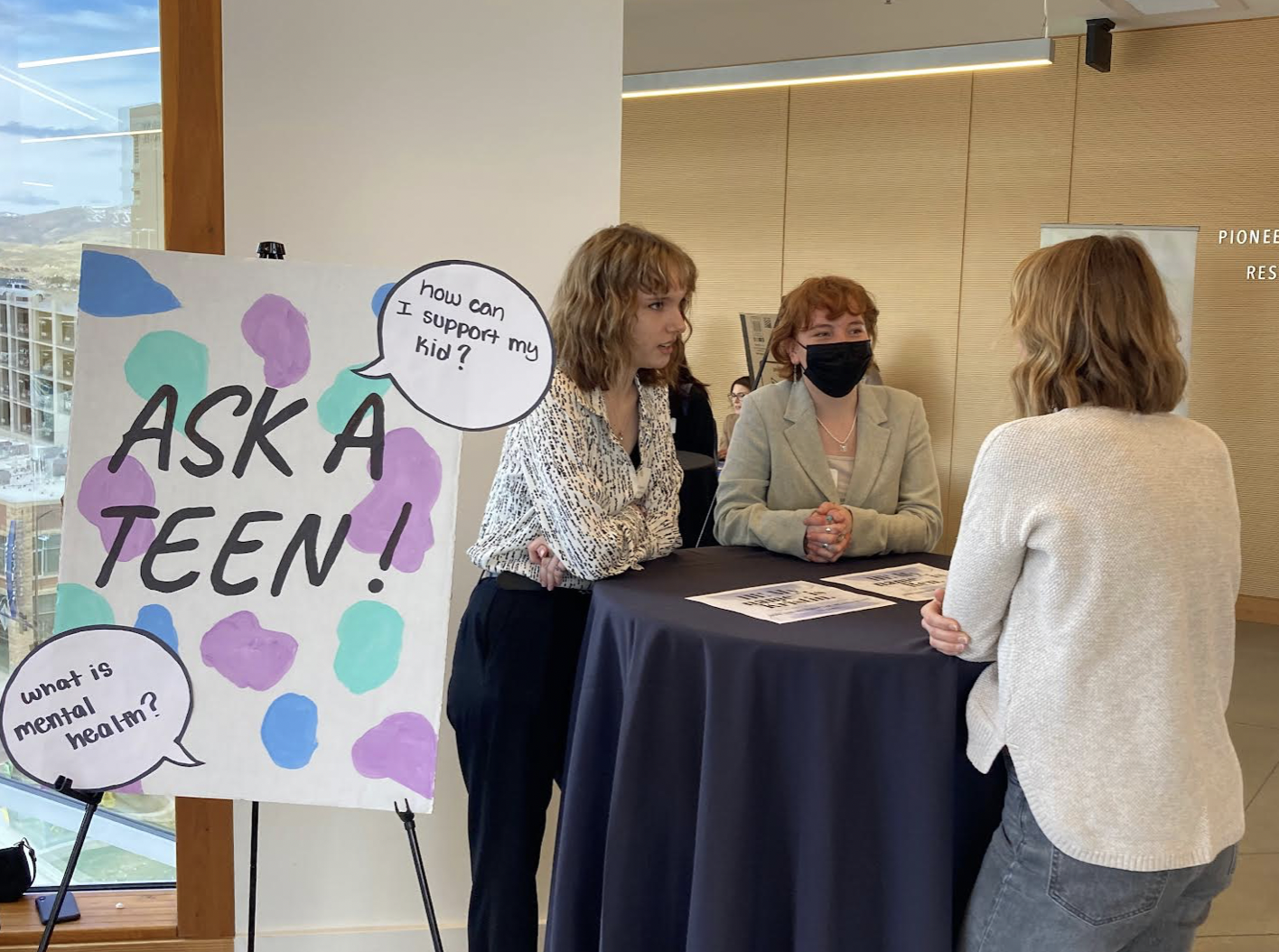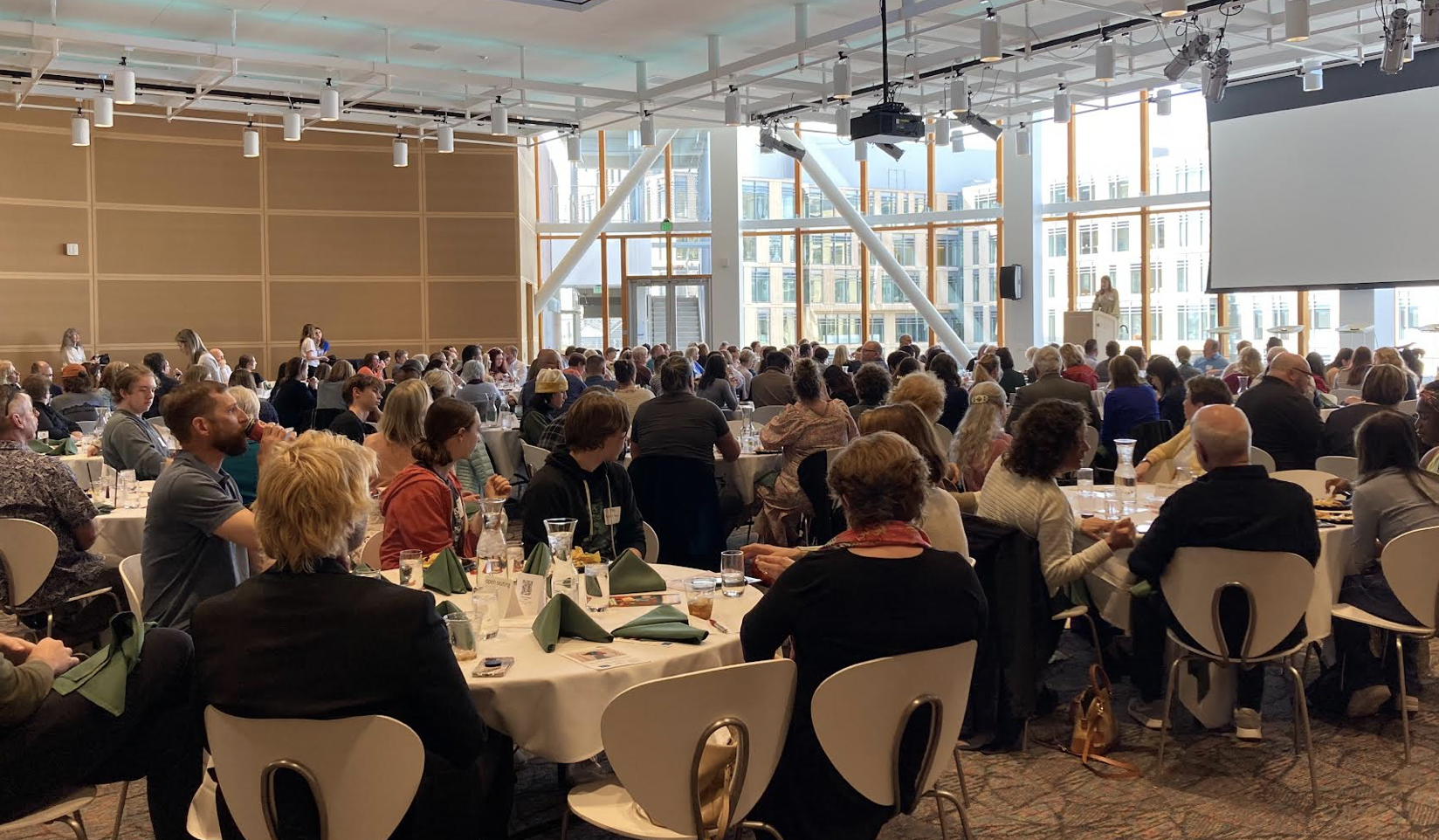A youth-led forum held in Boise Tuesday shed a light on one of the state’s most pressing issues — mental health among teenagers.
Organized by a team of 11 high school students (and three planning coaches), Tuesday’s conversation centered on mental health as part of the Marilyn Shuler Human Rights forum — an annual event held in honor of Shuler, a human rights advocate and founding member of the Boise City Club.
Mental health crises among teens are all too common — in Idaho, suicide is a leading cause of death among teenagers and young adults.

According to a 2019 study, more than 20% of Idaho high schoolers seriously considered attempting suicide, and nearly 40% felt sad or hopeless for more than two weeks of the year, impacting their normal behavior.
And a 2022 survey in the Boise School District found that 30% of middle schoolers and 44% of high schoolers experience moderate to severe depression; 29% of middle schoolers and 34% of high schoolers have considered suicide.
These numbers set the backdrop for Tuesday’s event, where four panelists shared their own experiences and answered questions about how to support youth.
From grief and isolation to sexual assault and trauma, the four panelists gave insight into what today’s teenagers are dealing with.
High schooler Rafielle Novak spoke to her experience with depression, which began in 2021 after she lost her best friend to suicide. She turned to music as an outlet, and at Tuesday’s event, Novak performed an original song dedicated to her friend.

Panelist and Boise comedian Beth Norton spoke to her own experience — spending 14 years in the foster care system.
“I’m no stranger to mental health issues,” Norton said.
Despite having some support as a teen, like teachers and counselors, Norton told the audience that being a foster child sent a message that she wasn’t worthy or valued, and didn’t belong. As a teenager, those feelings were formative. As an adult, Norton continues to struggle with mental health issues.
And that’s not an uncommon experience for foster kids and former foster kids. Up to 80% of children in foster care experience significant mental health issues — with PTSD and depression topping the list.
Norton emphasized the importance of giving teens space to feel their feelings, and offering support.
“We really just need each other,” Norton said. “If you’re the person asking someone ‘Are you okay?’ are you really prepared to hear something difficult?”
In high school, now-college graduate, writer and comedian Katie Lotz started skipping school, dropping classes and letting her grades fall. She had developed depression, and it wasn’t until a friend asked if she was okay, that Lotz revealed the reason why — she had been sexually assaulted.
As a teen, Lotz was an outspoken feminist, Planned Parenthood volunteer and leader on her high school debate team. She wasn’t unfamiliar with victims advocacy. But when it happened to her, Lotz said opening up was another obstacle.
“Symptoms of depression were turning me into someone I didn’t recognize, and I didn’t really like,” Lotz said Tuesday. “I suddenly realized I didn’t know how to ask for help.”
Victims of sexual assault typically see higher rates of depression, anxiety and suicidal ideation, alongside other physical effects like high blood pressure and chronic pain.
And in a 2019 study, 8.5% of Idaho students reported having been sexually assaulted, and experts estimate that sexual assault among all ages is underreported.
Mental health support should include advocacy and the arts
The panelists offered the audience advice on how to support teens dealing with mental health issues.
Lotz, Norton and Novak emphasized the arts — writing, music, theater and other artistic programs that offer outlets for students to explore and process their emotions.
“Providing kids with safe creative spaces so they can work through what they’re going through is very, very beneficial to teens,” Lotz said.

Panelist and event organizer Lils Peterson called on audience members to vote for lawmakers and local officials who will support teenagers and mental health resources statewide.
“Be an advocate for teens,” said Peterson, a 2022 high school graduate. “They sometimes just need an extra voice.”
On the same note, Lotz called out recent legislation that she said strips choice away from teenagers — especially young women and LGBTQ+ youth. Her comment was a nod at HB 71, which restricts transgender healthcare for minors, and HB 242, which criminalizes ‘abortion trafficking.’
Respecting teenagers’ decisions and identities, Lotz said, can go a long way.
“Teens are much more capable and much smarter than people give them credit for,” she said.
